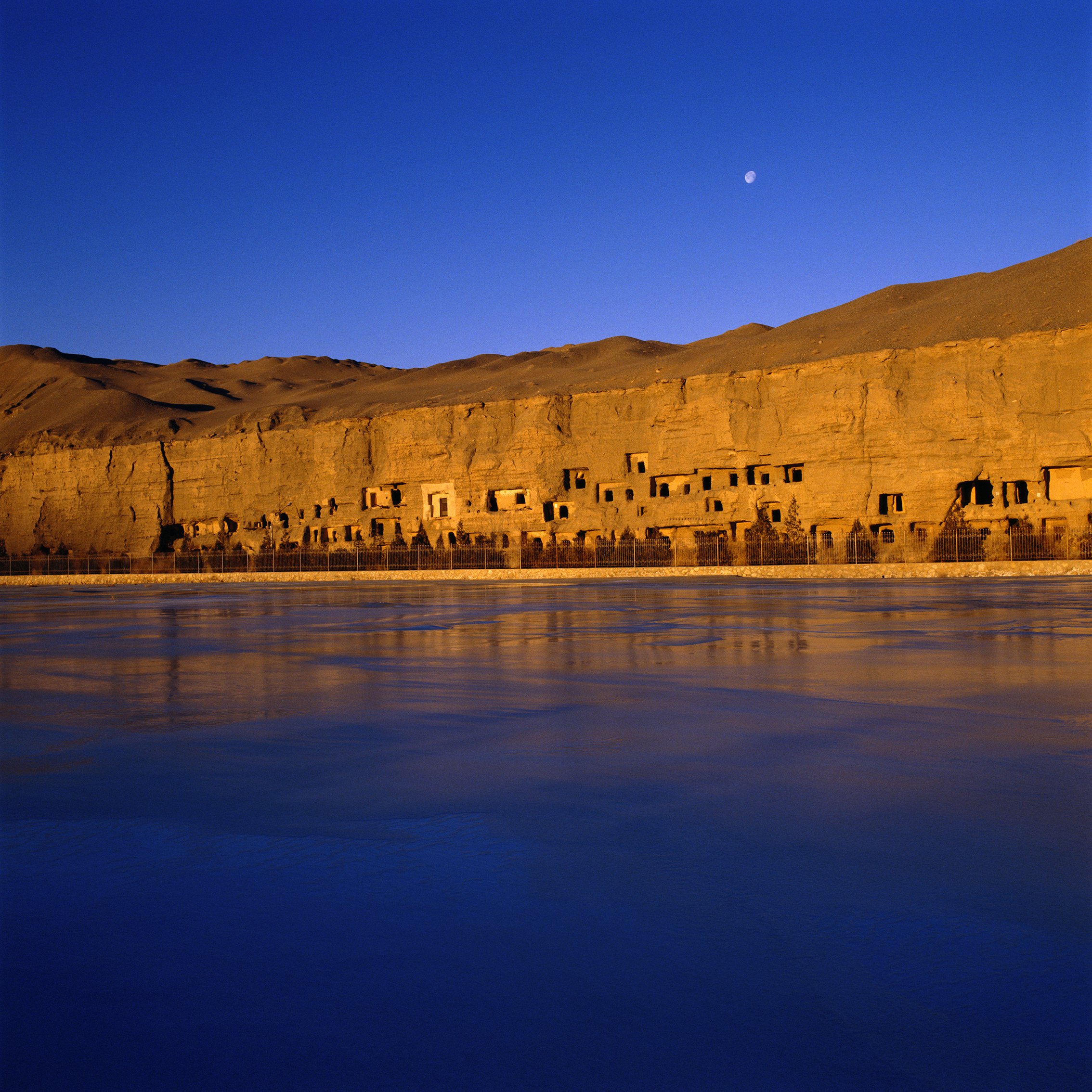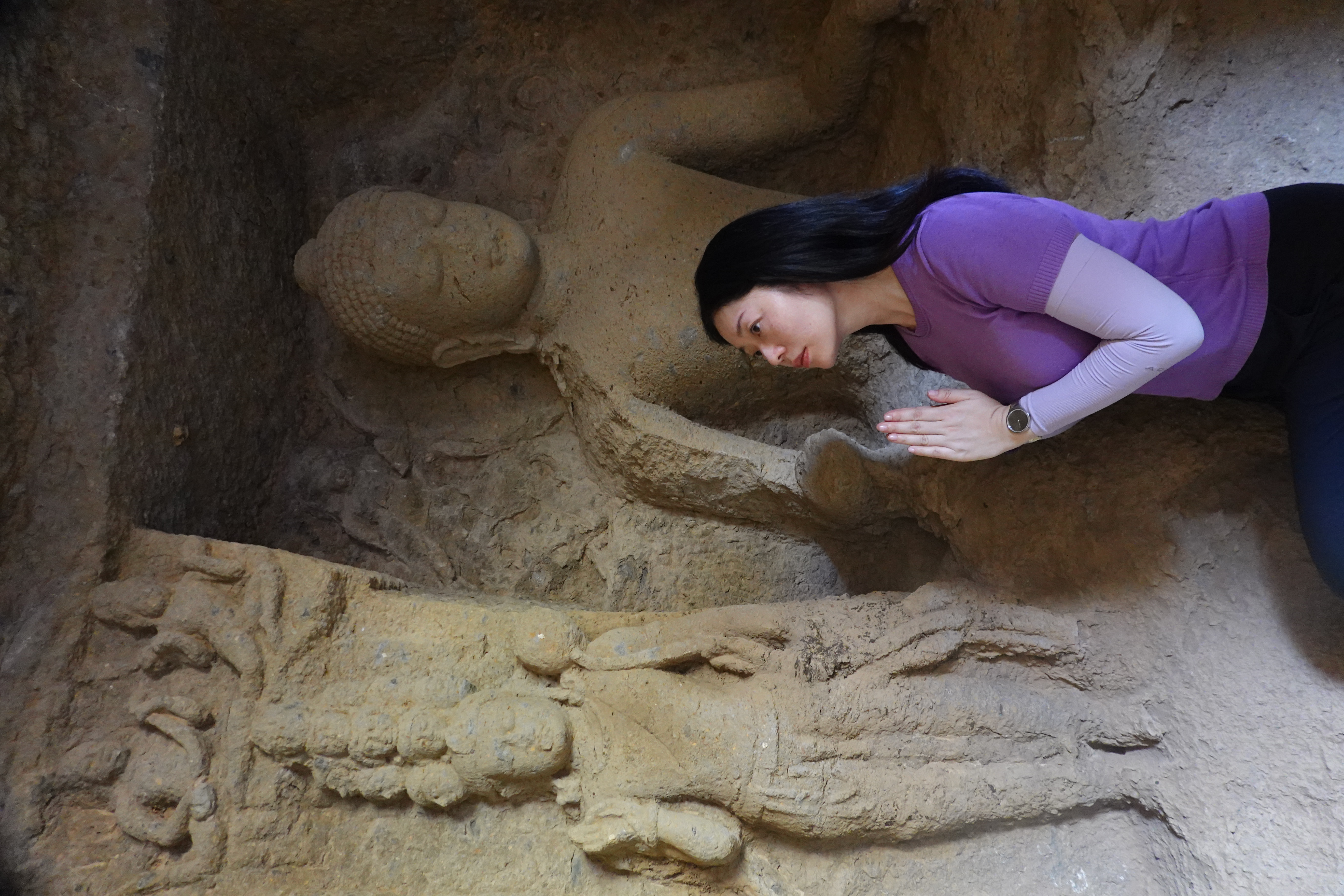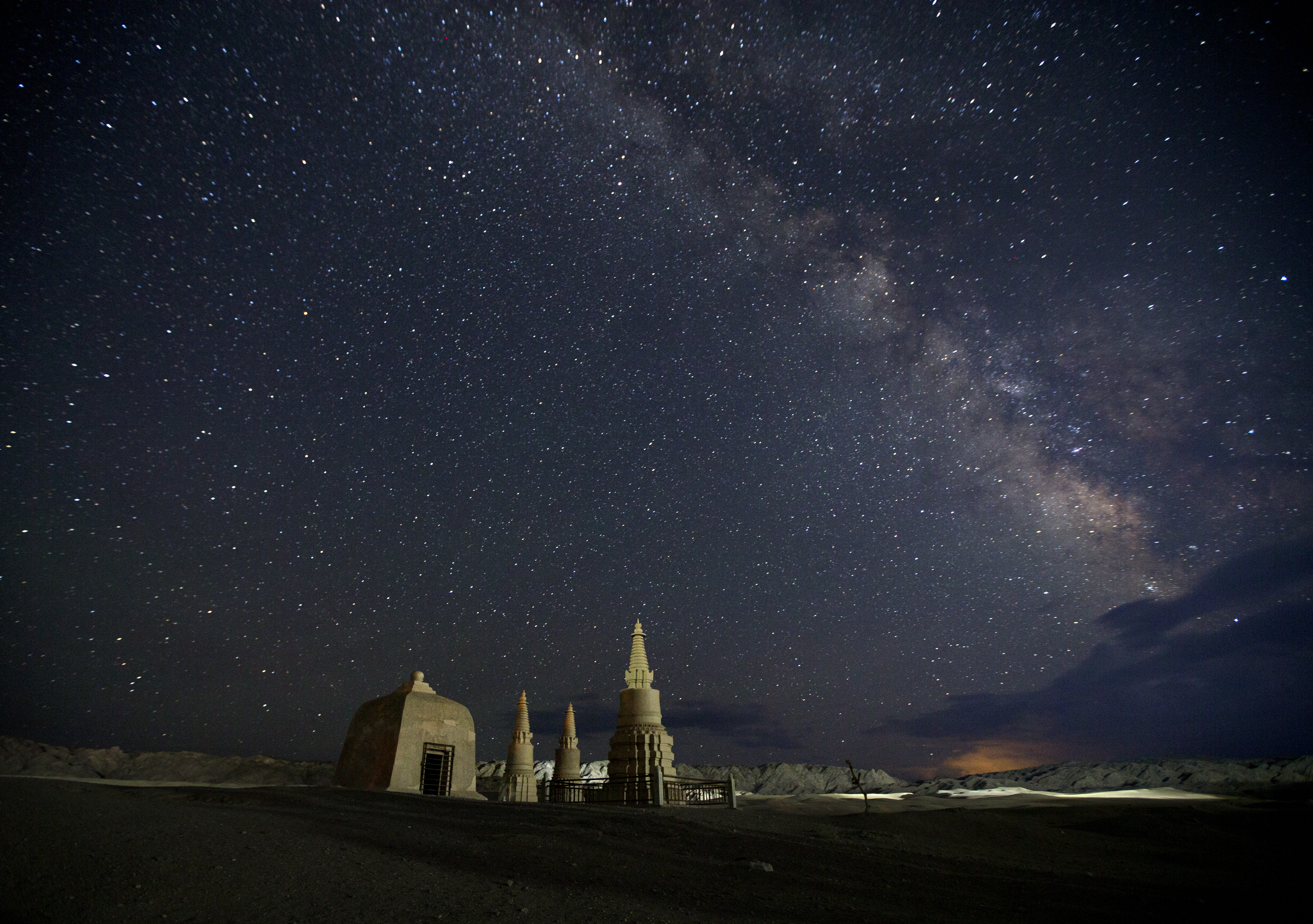With the year of the dragon returning in 2024, I cannot help thinking back to the last time the dragon was upon us: in 2012, when London hosted the Olympics, when The Dark Knight Rises was released in cinemas, and when I returned to Hong Kong from my time at SOAS, after finishing an MA in Buddhist Studies. At the same time as I was newly equipped to start working at BDG, the elegant and erudite Dr. Irene Lok earned her doctorate at The University of Hong Kong’s Centre of Buddhist Studies (CBS).
While Irene no longer works with CBS, I think that the Center should be proud for producing one of its most prominent Buddhist Studies PhDs in Hong Kong, serving as a prominent scholar of Dunhuang in the territory. Her foci is on iconography, aesthetics, and the divine presence of Avalokiteshvara or Guanyin at the Mogao Caves. Guanyin is one of the most popular deities at Mogao and has been exquisitely represented in many caves in the forms of statues and murals.

Irene currently works as a honorary research associate and art advisor at Jao Tsung-I Petite Ecole in The University of Hong Kong. She has also been looking beyond Asia as an international scholar. Recently, she was invited by acclaimed Sinologist and Tangutologist Imre Galambos to spend 2024 at Cambridge University as a fellow, working with other Dunhuang specialists on a research project.
Over the years, I have had the pleasure to encounter her at various points in time related to CBS and BDG. She has given interviews with the Chinese-language website of Buddhistdoor (BDC) and written columns for our Chinese-language counterpart. Her Dunhuang column was re-published as a paperback book in 2021, Serendipity at Dunhuang (緣繫敦煌). With all copies sold out, a new edition is slated for 2024: another milestone. Her father Dr. Anthony Lok (an ex-civil servant who became a professor at the Polytechnic University of Hong Kong in his second career), has his own column on this blog.

While she has published columns and articles prolifically since her PhD, her book, Contemplating the Mind at Ease: Origin of the Guanyin (Avalokiteśvara) Festivals and Worshipping in Hong Kong (2021), marked a new milestone in her research. Irene had been admitted into the Intangible Cultural Heritage category of CreateHK’s “The 1st Next Writer Publication Funding Scheme,” and based on this funding, she put together a book full of informative essays and vivid pictures about the history of Guanyin worship in the city.
“I have had the privilege to work on several volumes surrounding Guanyin. The focus of this book, in particular, is on guanyin zhizai (观音自在),” she told me. “It was your ex-colleague, Elsa, who persuaded me to publish Contemplating the Mind at Ease with her company, Hong Kong-based publishing house Cosmos Books” (Elsa Lau was a former editor of BDC). In this twist of a karmic story, Irene notes, Elsa ended up bringing into the world a topic that had interested Irene for over a decade. It was also a recipient of the Hong Kong Publishing Biennial Awards in 2021.
“I wanted to contribute something that was meaningful and informative, yet not dense enough for the layman to have to do background academic reading before looking at my work. It had to tell a good story, yet also avoid being superfluous,” said Irene. “Guanyin has been a part of my life in so many intimate and important ways, and I see my work as reflecting and telling the story of Guanyin.”

The UK Buddhist Studies scene is no stranger to Dunhuang studies, thanks to institutions like the British Library’s International Dunhuang Project (IDP), among many other initiatives. But Irene’s upcoming position as a Robinson College fellow is a unique opportunity to bring a new and fresh specialist’s focus. Irene’s connection to a specific deity’s presence and iconography, her full mastery of Chinese-language materials, and indeed, her Hong Kong perspective, are all boons that will bring the territory itself onto the international scene of Dunhuang academia. This could perhaps be Irene’s new role as we enter the year of the dragon, a decade on from the completion her doctoral studies: to serve as an interface between not just different cultures, but between cultures of scholarship. Just as Guanyin came from India, originally, but made a home in China before bringing her compassion to all the world, there are no limits to where Irene can go next.
Related features from BDG
Guanyin in the Desert: Louvre Abu Dhabi’s Director Manuel Rabaté on Universal Faith and Beauty
Related blog posts from BDG
Celebrating Two Decades of Buddhist Studies Excellence in Hong Kong


